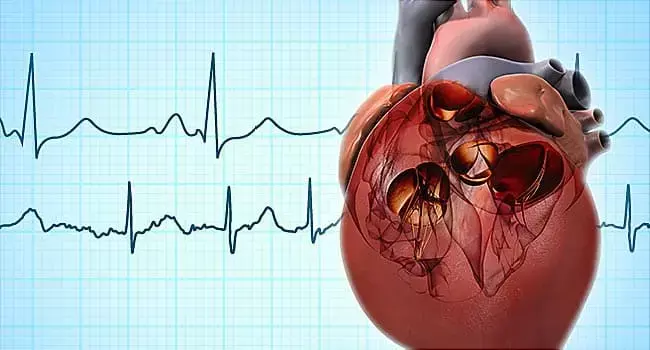- Home
- Medical news & Guidelines
- Anesthesiology
- Cardiology and CTVS
- Critical Care
- Dentistry
- Dermatology
- Diabetes and Endocrinology
- ENT
- Gastroenterology
- Medicine
- Nephrology
- Neurology
- Obstretics-Gynaecology
- Oncology
- Ophthalmology
- Orthopaedics
- Pediatrics-Neonatology
- Psychiatry
- Pulmonology
- Radiology
- Surgery
- Urology
- Laboratory Medicine
- Diet
- Nursing
- Paramedical
- Physiotherapy
- Health news
- Fact Check
- Bone Health Fact Check
- Brain Health Fact Check
- Cancer Related Fact Check
- Child Care Fact Check
- Dental and oral health fact check
- Diabetes and metabolic health fact check
- Diet and Nutrition Fact Check
- Eye and ENT Care Fact Check
- Fitness fact check
- Gut health fact check
- Heart health fact check
- Kidney health fact check
- Medical education fact check
- Men's health fact check
- Respiratory fact check
- Skin and hair care fact check
- Vaccine and Immunization fact check
- Women's health fact check
- AYUSH
- State News
- Andaman and Nicobar Islands
- Andhra Pradesh
- Arunachal Pradesh
- Assam
- Bihar
- Chandigarh
- Chattisgarh
- Dadra and Nagar Haveli
- Daman and Diu
- Delhi
- Goa
- Gujarat
- Haryana
- Himachal Pradesh
- Jammu & Kashmir
- Jharkhand
- Karnataka
- Kerala
- Ladakh
- Lakshadweep
- Madhya Pradesh
- Maharashtra
- Manipur
- Meghalaya
- Mizoram
- Nagaland
- Odisha
- Puducherry
- Punjab
- Rajasthan
- Sikkim
- Tamil Nadu
- Telangana
- Tripura
- Uttar Pradesh
- Uttrakhand
- West Bengal
- Medical Education
- Industry
Dabigatran reduces mortality in patients with atrial fibrillation and obesity: Study

USA: According to a study conducted by Cheng-Wei Huang and peers, dabigatran was effective in reducing the risk of thromboembolism and mortality in atrial fibrillation (AF) patients with a BMI >40kg/m2 or a weight >120kg in a real-world clinical setting, but was associated with an increased risk of bleeding when compared to warfarin. Because of their efficacy and safety, direct oral anticoagulants such as dabigatran are the recommended anticoagulant in the treatment of AF. It remains to be seen whether this extends to very obese patients.
The purpose of this study was to assess the efficacy and safety of dabigatran vs warfarin in AF patients with extreme obesity. The findings of this study were published in the Journal of General Internal Medicine on 20th September 2021.
Participants in this research were AF patients with a BMI >40kg/m2 or a weight >120kg who were using dabigatran or warfarin in a major integrated health system between 10/01/2010 and 12/31/2019 and were followed up on until 08/01/2020.
This work pointed out key outcomes; when compared to warfarin, dabigatran was linked with a lower risk of thrombosis and a higher risk of bleeding in AF patients with extreme obesity in a real-world clinical environment. Dabigatran was also associated with a lower risk of death when compared to warfarin.
This study found that dabigatran usage reduced composite thromboembolism by 29%, owing largely to a decrease in the transient ischemic attack. This research featured a longer follow-up time than most other real-world dabigatran studies, which likely allowed for greater capture of longer-term outcomes such as death. There were no correlations between composite outcomes and mortality in individuals with a BMI of 45kg/m2.
In conclusion, dabigatran was more effective than warfarin in lowering the risk of thromboembolism and death, although it was linked with an increased risk of bleeding in AF patients with extreme obesity. These findings are usually comparable to those found in non-severely obese AF patients, and they contribute to the evidence that dabigatran may be a viable choice for AF patients with severe obesity.
Reference:
Huang, C.-W., Duan, L., An, J., Sim, J. J., & Lee, M.-S. (2021). Effectiveness and Safety of Dabigatran in Atrial Fibrillation Patients with Severe Obesity: a Real-World Retrospective Cohort Study. Journal of General Internal Medicine. https://doi.org/10.1007/s11606-021-07114-8
Medical Dialogues consists of a team of passionate medical/scientific writers, led by doctors and healthcare researchers. Our team efforts to bring you updated and timely news about the important happenings of the medical and healthcare sector. Our editorial team can be reached at editorial@medicaldialogues.in.
Dr Kamal Kant Kohli-MBBS, DTCD- a chest specialist with more than 30 years of practice and a flair for writing clinical articles, Dr Kamal Kant Kohli joined Medical Dialogues as a Chief Editor of Medical News. Besides writing articles, as an editor, he proofreads and verifies all the medical content published on Medical Dialogues including those coming from journals, studies,medical conferences,guidelines etc. Email: drkohli@medicaldialogues.in. Contact no. 011-43720751


